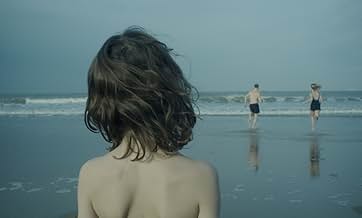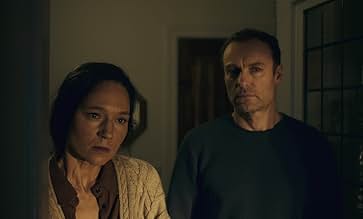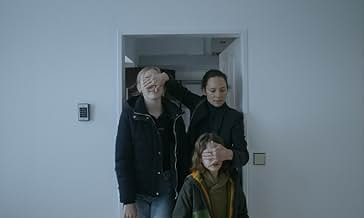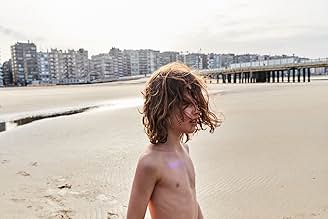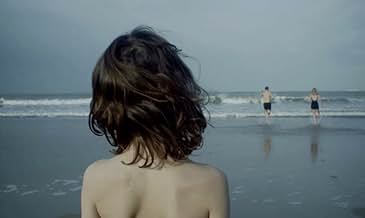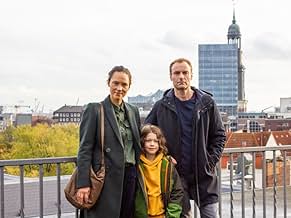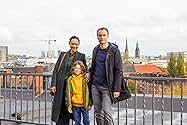A mysterious home invasion triggers off a shake in the core of a cosmopolitan middle-class family and unveils the fragility of truth and the power of individual perspective.A mysterious home invasion triggers off a shake in the core of a cosmopolitan middle-class family and unveils the fragility of truth and the power of individual perspective.A mysterious home invasion triggers off a shake in the core of a cosmopolitan middle-class family and unveils the fragility of truth and the power of individual perspective.
- Awards
- 8 nominations
Thomas Wind
- Host Focus Group
- (as Dr. Thomas Wind)
- Director
- Writer
- All cast & crew
- Production, box office & more at IMDbPro
Storyline
Featured review
If you enjoy reading my Spoiler-Free reviews, please follow my blog :)
One of my intentions with this edition of Sundance was to catch as many foreign language films as possible, but without forcing myself to watch a movie that didn't interest me in the slightest. Human Factors has an intriguing premise that instantly grabbed my attention, and it was the first international flick that I added to my watchlist, so I was definitely excited. Unfortunately, it fails to build its concept in a compelling manner throughout the entire runtime, even though it's technically impressive.
Klemens Hufnagl's cinematography is undoubtedly the standout of the entire film. Ronny Trocker employs long takes and uses the physical performances from the cast to deliver the intended messages and hints to the understanding of the underlying themes that surround the overarching mystery. Different viewers can interpret these topics in distinct ways, and the screenplay's structure allows for each character's perspective of the break-in to address matters such as isolation, paranoia, personal fears, and much more. Sadly, these subjects gradually become less interesting and too philosophical due to the individual storylines that become apparently detached from the main plot.
The terrific, smooth camera work left me hoping for something that would profoundly affect the movie in a positive way, but the twisty yet unimpactful third act doesn't compensate for the slow pacing, dull conversations, and overall lack of energy. The ending warrants more time to think about it, but the underwhelming feeling will probably remain. I also found it very tough to connect with a single character, and if it weren't for the decent performances, this would have been a major letdown.
Human Factors carries an interesting premise and a storytelling structure that allows for meaningful underlying themes to be explored through isolated storylines. However, despite the remarkable cinematography from Klemens Hufnagl and Ronny Trocker's commitment to his screenplay, the philosophical, ambiguous atmosphere present during the entire runtime only hurts the already heavy pacing and bland interactions, ultimately transforming each character's arc into something hard to be emotionally invested in. The final act is as close as the viewers get to intriguing development, but the several narrative twists don't impact the overall story in a captivating nor surprising manner. Good performances from Sabine Timoteo and Mark Waschke save the film from a more significant disappointment.
Rating: C-
One of my intentions with this edition of Sundance was to catch as many foreign language films as possible, but without forcing myself to watch a movie that didn't interest me in the slightest. Human Factors has an intriguing premise that instantly grabbed my attention, and it was the first international flick that I added to my watchlist, so I was definitely excited. Unfortunately, it fails to build its concept in a compelling manner throughout the entire runtime, even though it's technically impressive.
Klemens Hufnagl's cinematography is undoubtedly the standout of the entire film. Ronny Trocker employs long takes and uses the physical performances from the cast to deliver the intended messages and hints to the understanding of the underlying themes that surround the overarching mystery. Different viewers can interpret these topics in distinct ways, and the screenplay's structure allows for each character's perspective of the break-in to address matters such as isolation, paranoia, personal fears, and much more. Sadly, these subjects gradually become less interesting and too philosophical due to the individual storylines that become apparently detached from the main plot.
The terrific, smooth camera work left me hoping for something that would profoundly affect the movie in a positive way, but the twisty yet unimpactful third act doesn't compensate for the slow pacing, dull conversations, and overall lack of energy. The ending warrants more time to think about it, but the underwhelming feeling will probably remain. I also found it very tough to connect with a single character, and if it weren't for the decent performances, this would have been a major letdown.
Human Factors carries an interesting premise and a storytelling structure that allows for meaningful underlying themes to be explored through isolated storylines. However, despite the remarkable cinematography from Klemens Hufnagl and Ronny Trocker's commitment to his screenplay, the philosophical, ambiguous atmosphere present during the entire runtime only hurts the already heavy pacing and bland interactions, ultimately transforming each character's arc into something hard to be emotionally invested in. The final act is as close as the viewers get to intriguing development, but the several narrative twists don't impact the overall story in a captivating nor surprising manner. Good performances from Sabine Timoteo and Mark Waschke save the film from a more significant disappointment.
Rating: C-
- msbreviews
- Jan 29, 2021
- Permalink
- How long is Human Factors?Powered by Alexa
Details
- Runtime1 hour 42 minutes
- Color
- Sound mix
- Aspect ratio
- 1.66 : 1
Contribute to this page
Suggest an edit or add missing content




